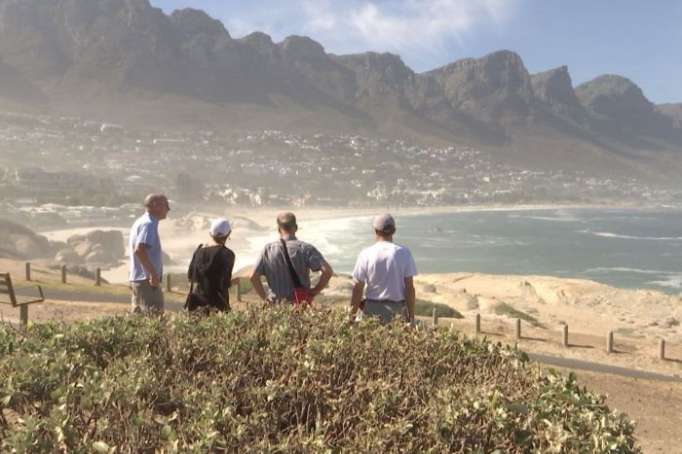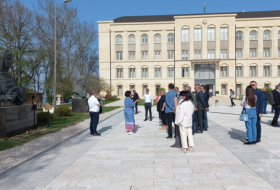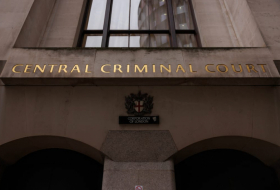The dam is at less than 13 per cent of its capacity, and summer isn't over yet.
Irrigator Keith Bradley has spent his life in this valley. He's seen good seasons and bad, but nothing like this.
Irrigation directly employs more than 4,000 people here. Many more rely on it indirectly. Apples, pears and other crops are irrigated with water from the dam.
But water allocations have been cut to give more to the residents of nearby Cape Town. Mr Bradley says that's having a significant effect on farmers.
"It's huge. There has been a lot of finger pointing and accusations going left and right. All I know is that in our community we are obeying the water rationing. We have been cut by 60 per cent," he says.
Without significant rain, Cape Town will hit 'Day Zero' on July 9.
The date, pushed back from June 4, is the day the dams drop below safe levels and the water supply to much of the city will be cut off.
Residents will be forced to queue at 200 water distribution points across the city. They will be limited to 25 litres per person per day.
Western Cape Environment Minister Anton Bredell says while some critics have dismissed Day Zero as alarmist, the disaster is real.
"We have started with the concept of Day Zero, to get a kind of urgency to our public, to understand we do face a crisis if they don't work with us," he says.
"Obviously when you face a drought, you need to reduce your consumption first of all, and for that, we need the cooperation of our public."
Residents are already restricted to 50 litres of water per person per day. The city has managed to halve its daily water consumption, but supplies are still running low.
Mr Bredell says the world is looking on as Cape Town risks becoming the first modern city to run dry.
"It's funny that now that it hits Cape Town, there is awareness. One of the challenges will be to keep the awareness," he says.
The Government is examining a range of long-term measures, including desalination and utilising aquifers. It's even seeking Australian advice on how to deal with the problem.
"The question we are grappling with — and we are sending a task team to Australia to learn from your side also — is how do you create sustainable cities? And what do you need for cities to be sustainable, resource-wise," Mr Bredell says.
Read the original article on abc.net.au.
More about: CapeTown
















































